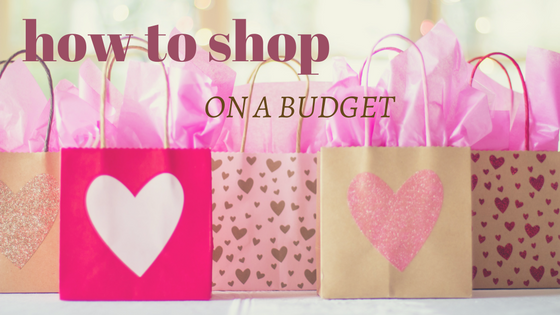Whether you are out for retail therapy, a day with the girls, or just in need of a particular item, it’s easy to overspend when you go shopping.
Pretty much everybody is on a
budget. Fortunately, this doesn’t mean you can still go shopping – you just
need to keep a tight grip on your wallet. This is easier said than done. Amazing
sales, a shopping high, and too many lattes make it inevitable that you will
spend more than you intend to.
Here are our top 5 tips to
prevent overspending the next time you go shopping.
Bring cash.
Before you head to the stores, take out the amount you set yourself in cash. Leave your credit cards at home so you won’t be tempted to use them. My husband’s grandmother used to put her credit cards in a jar full of water, then hide it the back of the freezer. By the time she got it defrosted, her urge to use the card had passed.
This may be a little extreme for a day of shopping, but the theory is still applicable. If you have to go all the way home for your card and back out just to buy something, you probably won’t want it by the time you return to the store.
Set a realistic budget.
Budgeting is one of those
things we know we should do, but just don’t want to. It’s not particularly
interesting, and it makes us feel broke.
When it comes to shopping,
your budget needs to be realistic. This means not too much, but also not too
little. Of course you don’t want to spend your rent money on shoes, but if you set
yourself a limit of $20 for the day you won’t enjoy going out.
If you’re going for the day,
include things like coffee, lunch/dinner, or snacks in your budget. Sadly, that
extra shot of espresso and jumbo cookie aren’t free. You don’t want to get to
dinner and find you have no money left.
To keep your food and drink
money separate from your shopping money, put it in a different part of your
wallet or purse. This way you have to consciously dip into the cash to spend it
on something other than what you intended.
Pro tip: Put your dinner money in a separate wallet. Physically keeping it separate makes it less tempting to spend it.
Pro tip: Put your dinner money in a separate wallet. Physically keeping it separate makes it less tempting to spend it.
Don’t get sucked in by sales.
Sales are great. Finding the
things we want at a cheaper price is always a plus. When stores have too much
merchandise left from the previous season, they anticipate receiving a large
amount of new inventory, there is a new promo coming up, or sales are slow,
they put things on clearance.
However, the fact that something
is on sale shouldn’t be reason enough to purchase it. There are a few things
you need to ask yourself before buying anything marked as clearance:
Would I like this if it was regular
price?
Do I have anything that goes with it?
Would I actually wear this?
Can I afford the sale price?
Do I have anything that goes with it?
Would I actually wear this?
Can I afford the sale price?
If you answered yes to the
questions above, go take advantage of the great price! If not, it’s probably a
waste of your money.
Remember that if the price has
been reduced because it is damaged, it isn’t worth buying. Damages are a
last-ditch effort for stores to reclaim some of their expense. Anything damaged
that can’t be sold gets written off, whereas if you purchase a damaged item you
get home with something you have to fix to be able to wear.
Also, if something is out of your price range, it doesn't matter how big a sale it is.
Also, if something is out of your price range, it doesn't matter how big a sale it is.
Prioritize what you want to buy.
In a perfect world, we could
go out and buy one (or two) of everything. For those of us who live in the real
world, we have to decide what to purchase and what to stare at through the
window.
Before you go, decide which
items are at the top of your priority list. Do you need shorts for the weekend,
or a dress for a special event? Deciding which items are the most important
will help you spend your money rather than throw it away.
Prioritizing your shopping
goals also means you’ll feel more accomplished when you get home. Because you’ll
have everything you intended to buy, instead of a pile of stuff you hadn’t even
thought to want, you can feel good about how you spent your hard-earned money.
Leave behind anything you aren’t sure about.
Not everything you find on a
shopping trip is a winner. When you find an item you love, grab it. Anything you absolutely love that fits right and is a good price is worth the money.
Then there are the items that you're on the fence about. After more than ten years in retail management, I can assure you that the vast majority of the time people put items on hold, they don't come back for them. Putting the item on hold gives you time to think about the purchase without the risk that someone else will buy it. Most stores will only hold the item until the close of the day anyway, so there is a limited amount of time for you think about it.
If you don't want to buy the item, leave it behind. Placing items on hold is waste of time. If you like an item enough to buy it, then do so.

No comments:
Post a Comment